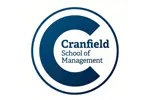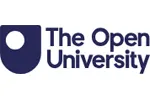The space sector contributes £13.7 billion per annum to the UK economy alone, and space activity across Europe and the world continues to thrive.
There is a continuing need for talented employees with a good understanding of spacecraft systems engineering, coupled with a broad range of technical skills. Evolving constantly since 1987, this course has prepared graduates for highly successful careers in the space sector.
Who is it for?
Suitable for graduates in engineering, physics or mathematics, this course will prepare you for a career in this exciting field, from earth observation to planetary exploration, launch vehicles to spacecraft operations, and much more.
Why this course?
This master's degree is highly respected around the world, and many of our students obtain employment/research offers in the space sector before the course finishes. We encourage interaction between our students and potential employers at events such as the group design project industry presentation, dedicated interview days, and alumni conferences. In many space companies and agencies within Europe you will find our former graduates, some in very senior positions. Many of them continue to contribute to the course, forming a valuable network of contacts for those entering the industry and this course will equip you with the skills required to join them in a successful career in industry or research.
You will have the opportunity to fly during a Student Experience Flight in our National Flying Laboratory Centre’s (NFLC) light aircraft. This flight experience will complement your MSc studies, focussing on the effects of control, spatial disorientation and the effects of “G” forces. During the flight you will have the opportunity to take control of the aircraft. Each experience is 2 to 3 hours in duration and includes a pre-flight safety briefing outlining the details of the manoeuvres to be flown, a flight of approximately 1 hour, and a post-flight debrief.
This course is also available on a part-time basis for individuals who wish to study whilst remaining in full-time employment. Cranfield University is well located for part-time students from all over the world, and offers a range of support services for off-site students. This enables students from around the world to complete this qualification whilst balancing work/life commitments.
Informed by industry
The course is directed by an Industrial Advisory Panel which includes representatives from Airbus DS, Open Cosmos, Telespazio, Oxford Space Systems, UK Launch Services Ltd and Eumetsat. This panel ensures that the course content equips you with the skills and knowledge required by leading employers.
Accreditation
The Astronautics and Space Engineering MSc is accredited by the Royal Aeronautical Society (RAeS) on behalf of the Engineering Council as meeting the requirements for further learning for registration as a Chartered Engineer (CEng). Candidates must hold a CEng accredited BEng/BSc (Hons) undergraduate first degree to show that they have satisfied the educational base for CEng registration.




